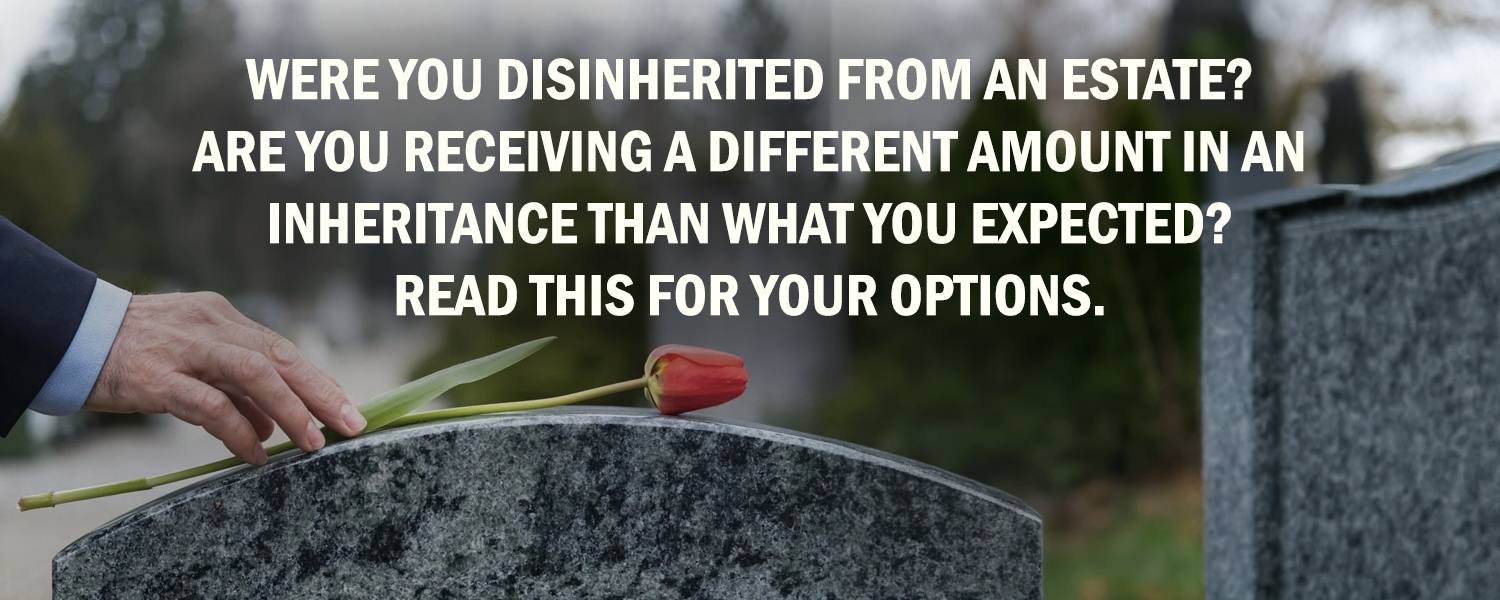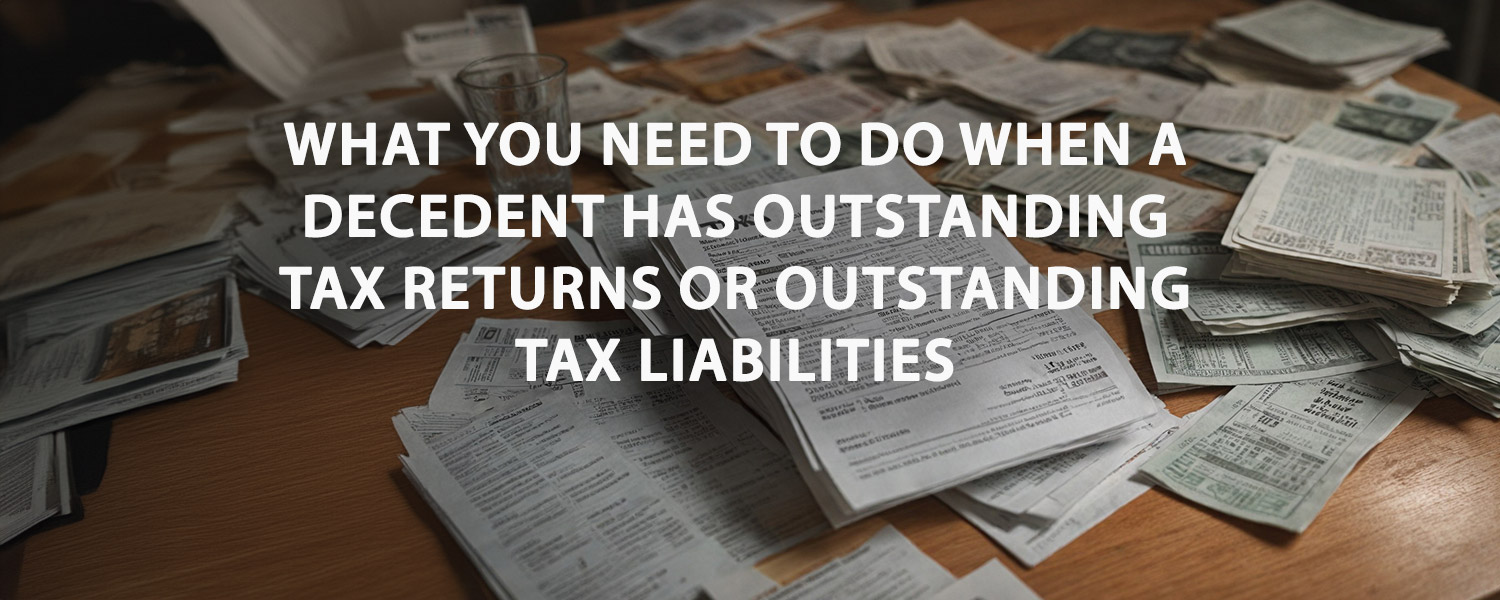How Can Estate Plan Documents Be Modified For An Incapacitated Spouse?
How Can Estate Plan Documents Be Modified For An Incapacitated Spouse?
Bush Estate Tax Cuts expire December 31, 2025 – Here is what you need to know.
In 2001 and 2003 under President Bush temporary tax cuts were enacted through through two pieces of legislation: the Economic Growth and Tax Relief Reconciliation Act (EGTRRA) and the Jobs and Growth Tax Relief Reconciliation Act (JGTRRA). Both measures were renewed in 2012 and 2017. Some of these tax cuts that have been enacted over the past 20 plus years are set to expire December 31, 2025, such as the Estate and Gift provision from the Tax Cuts and Jobs Act (TCJA) of 2017.
Estate and gift taxes – current law
The estate and gift provision in the TCJA of 2017 had a major impact on many people who may have a taxable estate in the future. The TCJA doubled the federal lifetime gift tax exemption amount, from $5.49 million in 2017 to $11.18 million in 2018 per individual. Under the TCJA, this higher exemption amount was then indexed for inflation in each subsequent each year.
In 2024, each individual has a combined federal estate and gift tax exemption of $13,610,000 (less any prior gifts made during life). This means that for federal tax purposes, in 2024 an individual can make lifetime gifts totaling up to $13,610,000 to anyone or transfer at death up to $13,610,000 (less any gifts made during life) to anyone without triggering the imposition of the federal estate and/or gift taxes. Married couples have a combined exemption, allowing them to make gifts during their lifetimes totaling $27,220,000. Any gifts during life or transfers at death with a value in excess of the available exemption amount will be subject to a federal estate and/or gift tax at a rate of 40%.
Estate and gift taxes – consequence of expiration of current law
After December 31, 2025 exemptions from estate and gift taxes will revert to pre-TCJA levels of around $5 million, adjusted for inflation. The lifetime gift and estate tax exemption, which was more than doubled by the 2017 tax reform bill, will go up with inflation in January 2025, then go down to near-2017 levels in January 2026 unless and until Congress steps in. If no action is taken by Congress by the end of 2025, then under the current law, on January 1, 2026, the federal lifetime exemption amount will be reduced to approximately one-half of the current value. Based on the rate of inflation, the exemption as of January 1, 2026 will be approximately $7 million per person.
We recommend that you review your assets, income and living expenses, then project those numbers out for your expected lifetime. Any excess assets remaining after your projected lifetime expenses is what you should consider to include in a revised estate plan that will not be burdened by a decrease in the estate and gift tax exemption. Not taking full advantage of the gift tax exemption before it drops in two years could result in a much smaller estate for your heirs.
Leverage 2024 gifting limits
Based on the 2024 gifting limits a direct gift of cash, securities or other assets with a value up to the lifetime exemption is a simple was to gift money or part of inheritance. Furthermore, you can use the annual gift tax exclusion — $18,000 in 2024, $36,000 for couples — to make yearly gifts to as many people as you like. For example, you can make a payment directly to a school to cover a child’s or grandchild’s tuition, or to a medical provider for health expenses, without incurring taxes. Neither “free” nor annual exclusion gifts count toward your lifetime gifting limit, and these rules are not slated to change in 2026.
Family Limited Partnerships or LLC’s
For estates that have substantial real estate holdings, it is beneficial to have such real estate owned by a limited liability company (“LLC”) and then all of the LLC interests owned by a Family Limited Partnership (“FLP”). As the owner of an FLP, you can then make gifts of limited partner interests in the FLP to family members at gift tax values that are discounted for lack of marketability and minority interests. These discounts essentially provide a great mechanism by which you can leverage your gift tax exemption to reduce your taxable estate. As the general partner of the FLP, you still control the management of the LLC’s.
Irrevocable Trusts
Rather than gifting cash or assets, alternatively, an irrevocable trust permits withdrawals based upon a schedule and conditions that you determine. This allows you to maintain a level of control over how and when the beneficiaries will receive distributions. When choosing which assets to gift or place in a trust it is important to look at what assets or gifts you expect will keep growing. When you gift assets using your lifetime gift tax exemption, the assets are transferred at today’s value, and there’s no tax to the beneficiaries. You can gift these assets using your lifetime gift tax exemption, allow heirs to have the current benefit and the gift or asset may experience appreciation in future years. It is important to have a skilled trusts and estates attorney draft documents, such as trust, so there are no issues with your estate.
How Can You Modify Estate Plan Documents For An Incapacitated Spouse?
If you have an incapacitated spouse who has not done any estate planning including not having executed a will or a revocable living trust or his or her documents are outdated, getting his or her estate in order is extremely important. In California, there is a special law available in regard to setting up an estate plan for an incapacitated spouse. Under California Probate Code §3100, a petition can be filed with the Courts to authorize a particular transaction involving spouse or domestic partner who lacks legal capacity, of unsound mind and unable to sign a power of attorney and has no conservator. This proceeding may be brought to authorize a particular transaction when both spouses or domestic partners have conservators, as well as when one has capacity and the other does not, or does not have a conservator. For example, this probate tool can be used if a husband and wife have all their assets as community property and they want to make gifts to their children and grandchildren to reduce their taxable estates, but one spouse lacks capacity (i.e. dementia) to make financial or testamentary decisions.
The effectiveness of a California Probate Code §3100 petition depends on the character of the subject assets being community property. If a proposed transaction involves mixed community and separate property, then for good cause the court may still include that separate property in the transaction. If some of the incapacitated spouse’s assets are exclusively his or her own separate property alone — such as, bank accounts from before their marriage or real property assets acquired as an inheritance during their marriage — then this approach probably will not work, unless the court is willing to be flexible and to see the bigger estate picture which is mainly community property assets.
With any separate property assets, commencing a conservatorship court proceeding may be necessary. A conservatorship must be opened in order to then make a substituted judgment petition asking the court to authorize estate planning. The California Probate Code §3100 petition and the court conservatorship petition are court proceedings that each require the following: (1) a determination of incapacity with respect to spouse with diminished capacity; (2) notification to the relatives within the 2nd degree of the spouse with diminished capacity regarding the hearing; (3) representation of the interests of the spouse with diminished capacity; and (4) service of a citation to appear at the court hearing on the spouse with diminished capacity.
Under California Probate Code §3100, the community property will be transferred to the well spouse as sole and separate property and then with the complete ownership of the assets, the well spouse can then engage in estate planning for the couple’s best interests.
What Should You Do?
When it comes to being ready for changes in the tax laws – two years may seem like a lot of time to adjust your estate plans, however, unless you’re simply making large cash gifts, developing a new plan will involve detailed conversations and analysis. Whether your existing estate plan was created recently or a while ago having a conversation with your estate attorney now can help you make better-educated decisions about your family’s future. Furthermore, drafting of documents and trusts can be done by a professional tax and estate attorney who can guide you through the complexities, nuances, and changes in estate and gift tax law.
That is why it is worth reaching out to a Trusts and Estates and/or Probate Attorney such as the at the Law Offices Of Jeffrey B. Kahn, P.C. We are always thinking of ways that our clients can save on taxes, trusts and estates planning, and probate matters. Whether or not a will exists, the expertise of a skilled lawyer at the Law Offices Of Jeffrey B. Kahn, P.C. is needed to help protect the interests of the parties involved. The tax attorneys at the Law Offices Of Jeffrey B. Kahn, P.C. located in Orange County (Irvine), Los Angeles and elsewhere in California are highly skilled in handling tax and probate matters and can effectively represent at all levels with the IRS and State Tax Agencies including criminal tax investigations and attempted prosecutions, undisclosed foreign bank accounts and other foreign assets, and unreported foreign income. Also, if you are involved in cannabis, check out what our cannabis tax attorney can do for you. Additionally, if you are involved in cryptocurrency, check out what a bitcoin tax attorney can do for you.











 Follow
Follow Follow
Follow